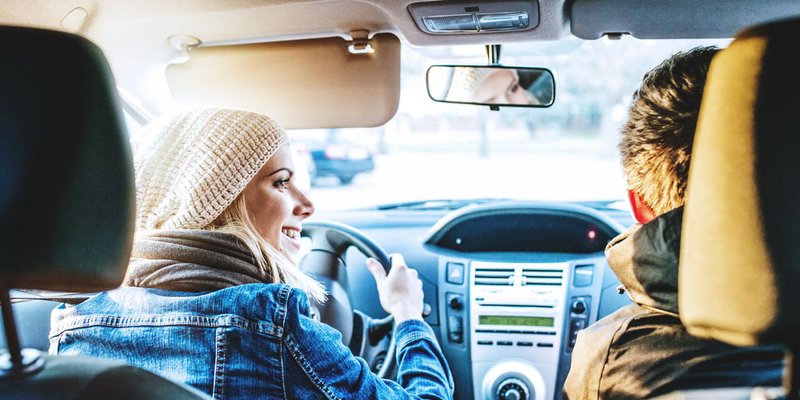
If you are not redirected within 30 seconds, please click here to continue.
Samedi: 10h – 16h HAE

If you are not redirected within 30 seconds, please click here to continue.
If you are not redirected within 30 seconds, please click here to continue.
RVs and Trailers: A Great Local Vacation Idea for Fall and Winter – What You Need to Know

When people dream about a camping road-trip adventure, they often think of canoes, lakes, and hot summer nights. But why limit yourself when there are breathtaking autumn colours, crisp cool air, and even snow-tinged mountains to discover?
With far-flung tropical travel not in the cards for most of us for the next little while (thanks to COVID-19) there may be no better time to get out of your comfort zone and discover what is waiting for you just up the road a bit.
According to a recent poll, even if it is permitted, a majority of Canadians appear reluctant to travel out of the country, or even domestically in 2020. But that doesn’t mean you have to stay home.
For one thing, open campgrounds are generally empty, the crisp air is quiet, and the landscape is peaceful. And the best part? There are no bugs!
If fall and winter camping or RVing sounds interesting but intimidating, we’ve compiled a few tips to consider and help ease your mind before heading out:
- Make sure your rig will be up to the rigours of colder camping. If you are using an RV, most current ones are designed, built, and insulated to take cold weather in stride, but make sure everything is sealed, and that the furnace works
- Consider buying a heated water hose to prevent freeze-ups or bursting.
- Keep all hoses and cables off the ground (and out of any snow). A small space heater can help keep water pumps from freezing.
- Make sure camping grounds are open.
- Check the weather before you go.
- Compile some emergency items
For cold-weather camping, consider having the following with you:
- Tire chains
- Weather band radio
- Extra blankets
- Extra warm clothing
- Sleeping bags rated for zero-degree temperatures
- Five gallons of drinking water in heated storage space
- A “white gas” camping stove (does not require propane)
- Gasoline-powered generator
- Extra propane tanks
- Blow dryer to defrost pipes and tanks
- Emergency GPS
- Extra food
- Solar charging panels are good for re-charging house batteries
- Cash for unexpected fees or emergencies
Don't waste time calling around for auto insurance
Use RATESDOTCA to shop around, and compare multiple quotes at the same time.
Renting an RV? Start small if you are a beginner
Smaller RVs are suitable for beginners who haven’t driven large vehicles often or recently.
The largest Class A motorhomes may have room for everyone in the family to spread out, but they’re harder to handle and more limited in the sites they can access. Practice your driving skills and consider a local RV school to get some hands-on experience with everything from backing into a campsite to properly adjusting lifts and slide-out sections.
For camping in the colder months, ensure the vehicle has winter tires and chains available to use if required. Finally, ensure that you understand what is covered in that rental’s insurance policy before driving away.
RV and trailer insurance: are you covered when you tow?
You know how your auto insurance works, at least at a very high level. You get in an accident with another vehicle or inanimate object, and damage to your automobile, the other party's property is covered — provided your policy is designed to meet your needs. There is also liability insurance for an injury suffered to your passengers or those of the other driver. But what about the playthings (like a trailer or a snowmobile) that you pull behind you?
- Runaway items and damage to others’ property. You could misjudge the height of a canopy over a refuelling island and have your hitched camper take out a chunk of that structure. It happens. The upside is that objects in tow that cause damage to a structure or vehicle fall under the umbrella of your auto coverage. Even if the trailer or camper comes away from the ball hitch rolls downhill (which happens more often than you'd think), the runaway item is considered part of the towing vehicle for liability insurance purposes.
- Trailers campers need standalone coverage. Even though damage to another party's vehicle or property by an RV or trailer in tow is covered under an auto policy, you still need to secure a separate insurance contract for the trailer or camper. Otherwise, you may end up eating any repair costs to that personal property. Even if you have a car accident while towing your trailer, your car insurance will usually not cover the damage to that trailer.
- Toys in tow also need separate coverage. When your toys are at home, they should be covered by your home’s contents insurance. But if you plan to tow winter toys, such as snowmobiles, it's a good idea to get separate damage coverage. Neither your auto nor your home policy will cover repairs to the items if they are damaged while being towed, or while in storage away from your home.
The good news is that recreational vehicle claims are less frequent than automobile mishaps, and that makes premiums for coverage reasonably affordable.
If you're a bit unsure about the ins and outs of trailer or RV insurance, talk to your insurance representative to make sure you are fully covered before you head out into the great outdoors.
Latest Articles
Get money-saving tips in your inbox.
Stay on top of personal finance tips from our money experts!









